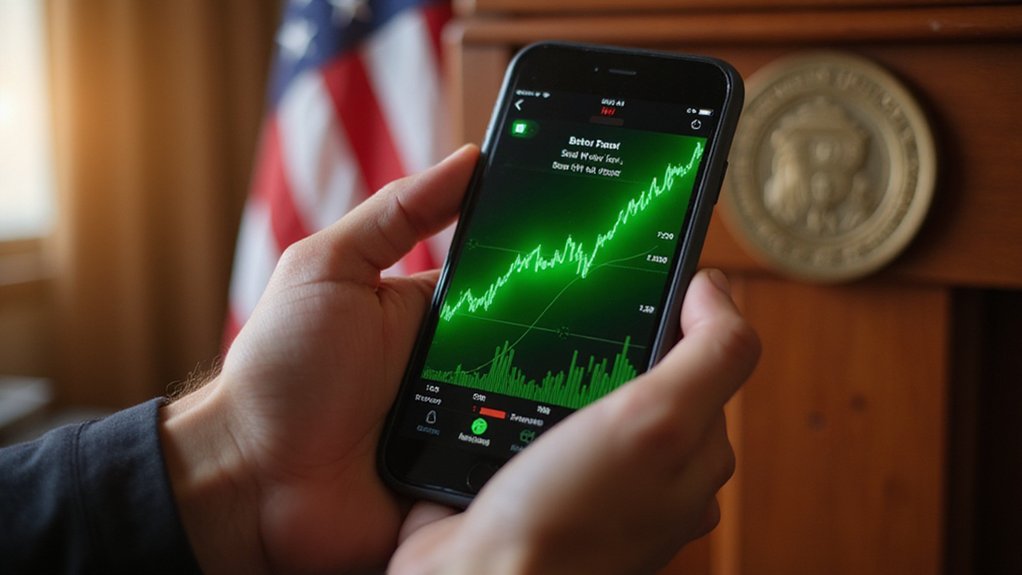In a move that would have sent European banking regulators reaching for their smelling salts just a few years ago, BBVA has begun advising its wealthy clients to allocate between 3% and 7% of their investment portfolios to Bitcoin and other cryptocurrencies—a recommendation that places the Spanish banking giant in decidedly lonely company among its continental peers.
BBVA’s crypto allocation advice would have horrified European regulators just years ago, positioning the Spanish bank as a continental outlier.
The allocation methodology reflects BBVA’s nuanced understanding of risk tolerance: conservative clients receive the 3% recommendation (which the bank insists can boost portfolio performance without excessive risk), while those with heartier constitutions and presumably stronger coffee are advised toward the 7% threshold.
This risk-tiered approach has been operational since September 2024, giving BBVA a head start in what many anticipate will become an inevitable institutional embrace of digital assets.
Perhaps more remarkable than the advisory itself is the regulatory blessing that preceded it.
Spain’s securities regulator authorized BBVA’s Bitcoin and Ethereum trading services in March 2025, creating a compliance framework that distinguishes the bank within Europe’s notoriously crypto-skeptical regulatory environment.
This official sanction reinforced BBVA’s confidence in their approach—confidence built upon executing crypto trades since 2021, long before advisory services launched. The bank’s early entry into digital asset execution demonstrates a long-term commitment that has evolved from initial exploration to comprehensive client guidance.
The operational infrastructure supporting these recommendations includes a mobile platform through subsidiary Garanti BBVA Crypto, facilitating transactions in Turkish lira and US dollars while targeting both retail and private banking clients.
The phased rollout began with select private clients before expanding to broader clientele, suggesting careful market testing rather than reckless enthusiasm. The platform’s advanced trading tools enable sophisticated investment strategies for clients seeking more complex crypto exposure beyond basic buy-and-hold positions.
BBVA’s positioning becomes even more striking when contextualized within European banking’s broader crypto aversion.
The European Securities and Markets Authority reports that approximately 95% of EU banks avoid cryptocurrency activities entirely, making BBVA’s advisory stance a notable statistical outlier.
While European Union regulators continue issuing warnings about crypto’s potential threats to financial stability, BBVA has calculated that controlled exposure represents opportunity rather than recklessness. The timing of these advisory services coincides with unprecedented Bitcoin ETF inflows that have reached record levels, supporting institutional confidence in digital asset legitimacy.
Market analysts predict increasing institutional involvement in digital assets, suggesting BBVA’s early positioning may prove prescient rather than premature.
Whether this represents visionary leadership or expensive experimentation remains to be determined, though early client adoption suggests the former interpretation may prevail.









